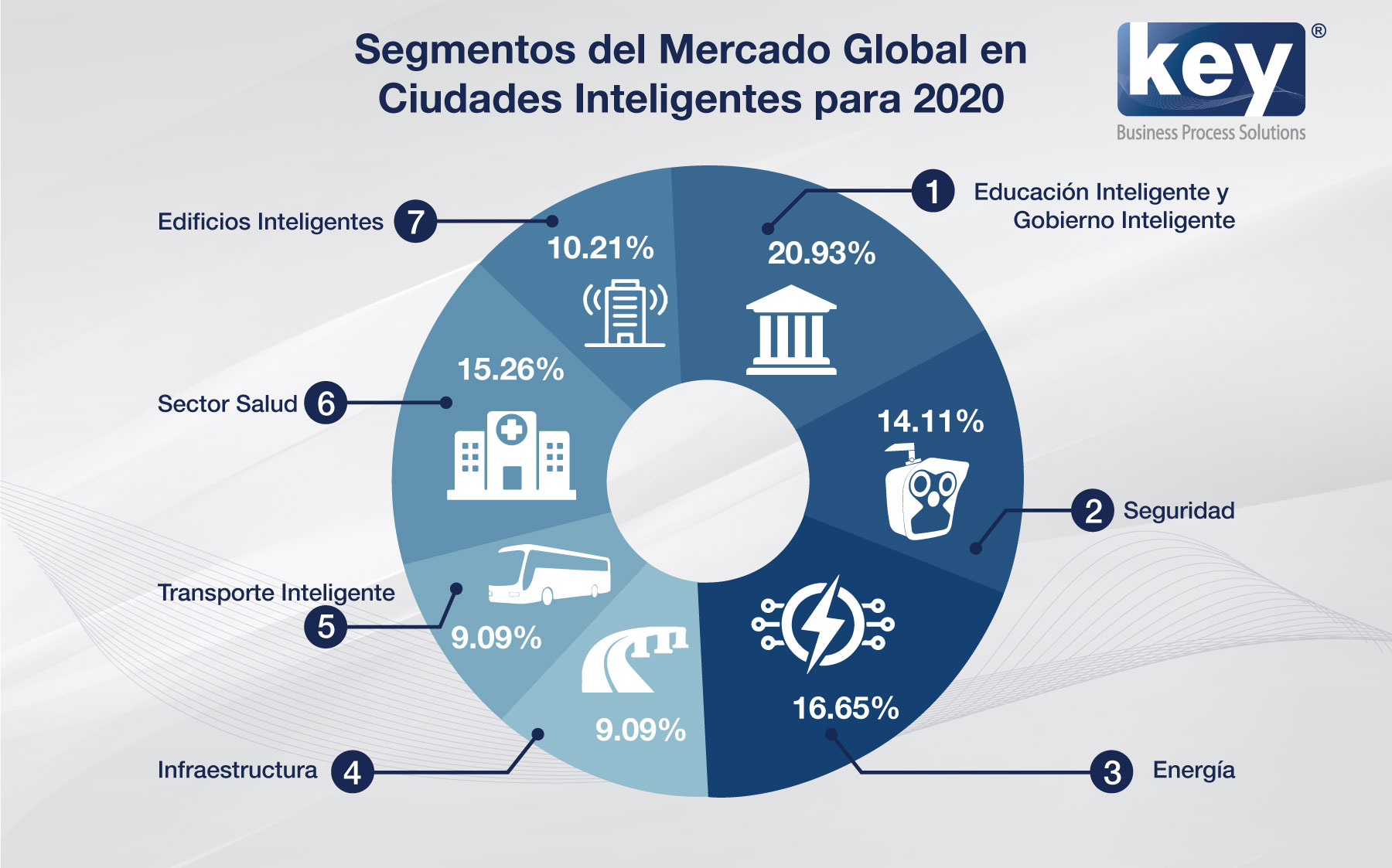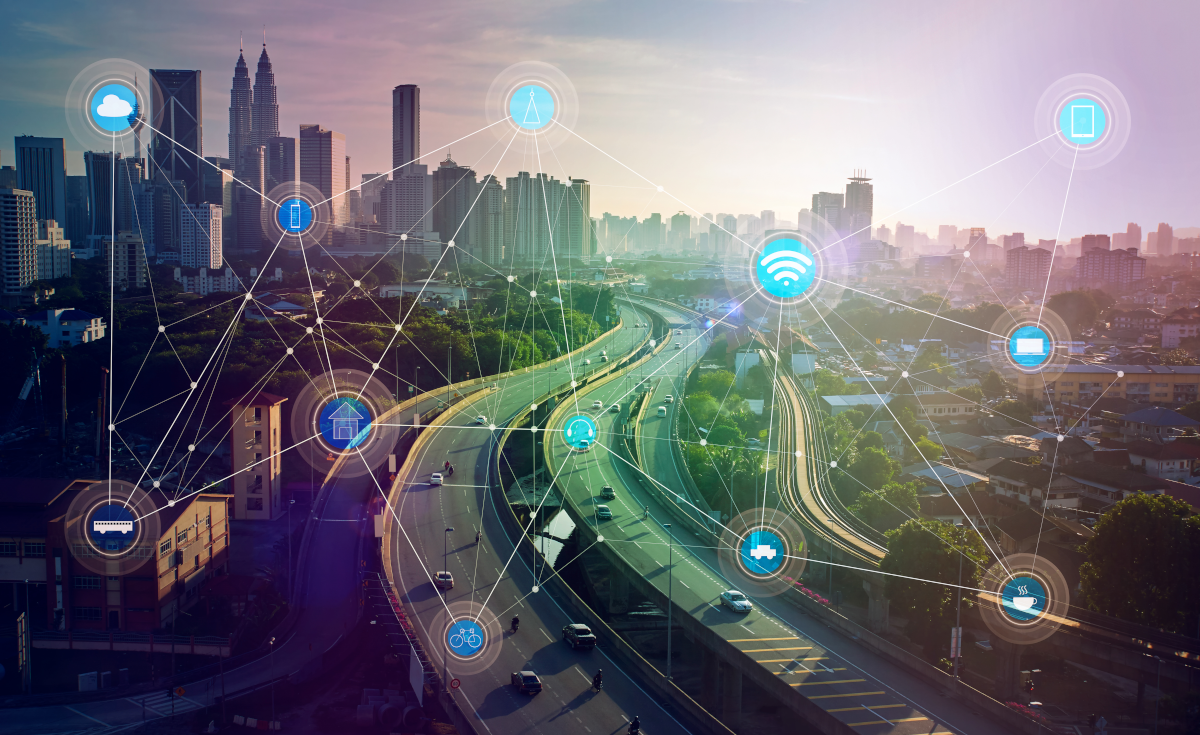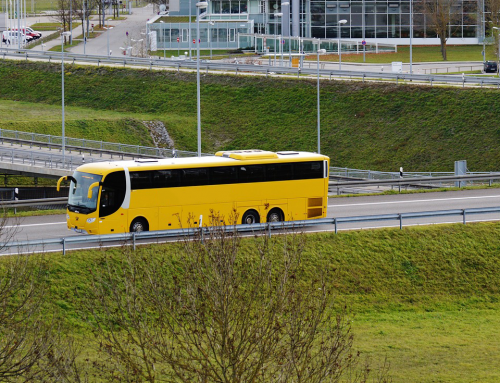The current supply of services and resources in cities is not sufficient and will be an even bigger problem as the population increases. The United Nations estimates that in 2050 70% of people on the planet will live in cities, so governments and private companies begin to invest money in technology that facilitates the processes of cities and make the most of their resources to meet the needs of all their inhabitants.
According to research consultant Frost & Sullivan, the smart city market will reach $1.5 trillion by 2020, and estimates that investments will be divided into the following sectors:

Government and Education: 20.93%
According to the consultant, there will be greater investment among government agencies to maintain better communication with citizens and send alerts for better management of emergencies, for example, through voice systems and digital screens.
With regard to education, the focus will be on creating distance learning platforms and improving the facilities of existing institutions to facilitate the collection and exchange of information and create environments that will facilitate learning.

Energy: 16.65%
The funds for this sector will be focused on implementing smart meters, clean energy and sensors that measure light conditions and temperature to take advantage of electricity in homes and public places.

Health Sector: 15.26%.
Health costs are constantly rising as a result of population growth and increased life expectancy, so the use of mobile devices among other ICTs in medical practice will be essential. The development of these systems will occupy 15.26% of the budget for the development of smart cities.

Security: 14.11%.
The control of identity by biometrics such as fingerprints, programs and devices to protect information, monitoring of activities in streets and avenues in real time and transport security will be the priorities in security matters.

Infrastructure: 13.75%.
The transformation of cities requires the adaptation of existing structures to integrate technology and the creation of new ones capable of supporting all the processes carried out in cities.

Transport: 9.09%.
Solutions for traffic monitoring and control, infrastructure for charging electric vehicles and smart parking with automatic payments will be the most demanded in terms of mobility.

Smart Buildings: 10.21
The construction of houses and smart buildings that have automated entertainment systems, access controls and surveillance networks for greater security and comfort of its inhabitants and users will have an annual growth of 8.8% in the coming years.






